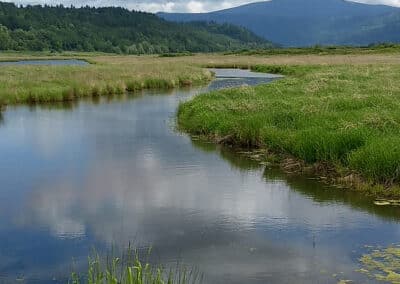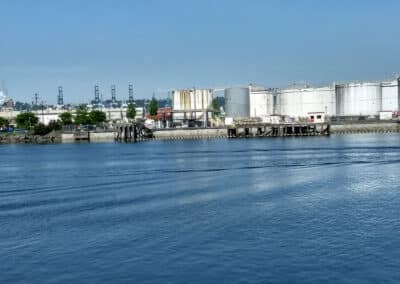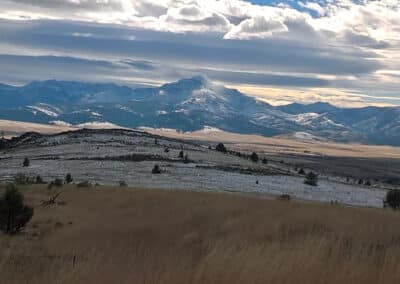Puget Sound Nutrient Problem: Chapter 3
In Which Washington Ecology Refuses to Develop the Required Clean-Up Plan
by Nina Bell • February 16, 2020 •
In Chapter 2 of the long-running saga about the demise of Puget Sound, I explained that the Washington Department of Ecology just cannot seem to stop itself from issuing illegal discharge permits to cities that are polluting Puget Sound. Now let me introduce another part of the Clean Water Act that Ecology is ignoring: clean-up plans that are required when a state lets pollution levels rise to levels that are unsafe for people and other living things.
First, it must be said that Ecology will not regulate pollution in a discharge from a city or industry until the water into which the discharge is going is already “over-polluted,” that is to say contaminated with unsafe levels of pollution. You might think this is an insane policy. I do. But this is how many states have decided to carry out the Clean Water Act. I’ll repeat: wait until the level of pollution is unsafe for human health, fish, and wildlife and then kick into action. Or not!
Ecology is one state that has a real problem with that kick-into-action part.
One way that the Clean Water Act promotes action is a requirement that the state (or the U.S. EPA if states fail) create clean-up plans for waters with unsafe levels of pollution. These are known as “TMDLs,” which stands for Total Maximum Daily Loads, meaning how much junk a river can tolerate without harming people, fish, and wildlife. Ecology is having a hard time getting these TMDLs done, but that’s another story.
However, once a TMDL clean-up plan has been completed, permit writers at Ecology must comply with the plan’s pollution limits. That’s the law. Right about now you might start to get an inkling that if the TMDL clean-up plan is going to require pollution limits, Ecology might be thinking that it’s better off not doing the plan in the first place. Bingo! You got it.
So, now you won’t be surprised that—despite decades of scientific studies and sophisticated models—Ecology refuses to put together a TMDL clean-up plan for Puget Sound. Because that would mean that Ecology would have to regulate the discharges of nutrient pollution from the cities. That’s why Ecology denied our 2017 rulemaking petition for a TMDL for Puget Sound nutrient pollution. Back then, Ecology told us that it prefered to continue evaluating the situation.
Now, Ecology has announced that it won’t be doing the TMDL clean-up plan that federal law requires. Instead, it says, it will draw up an alternative plan completely outside the Clean Water Act. Not all that surprising from an agency already operates outside the law.
Coming soon: Chapter 4, In Which Washington Ecology Refuses to Carry Out a 75-Year Old State Law



